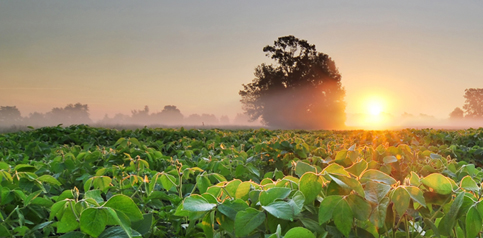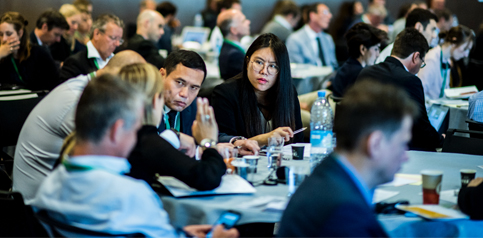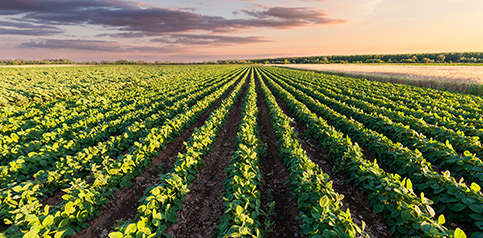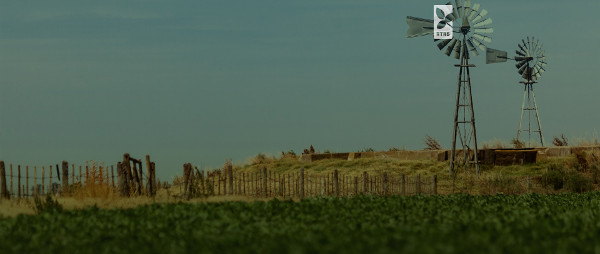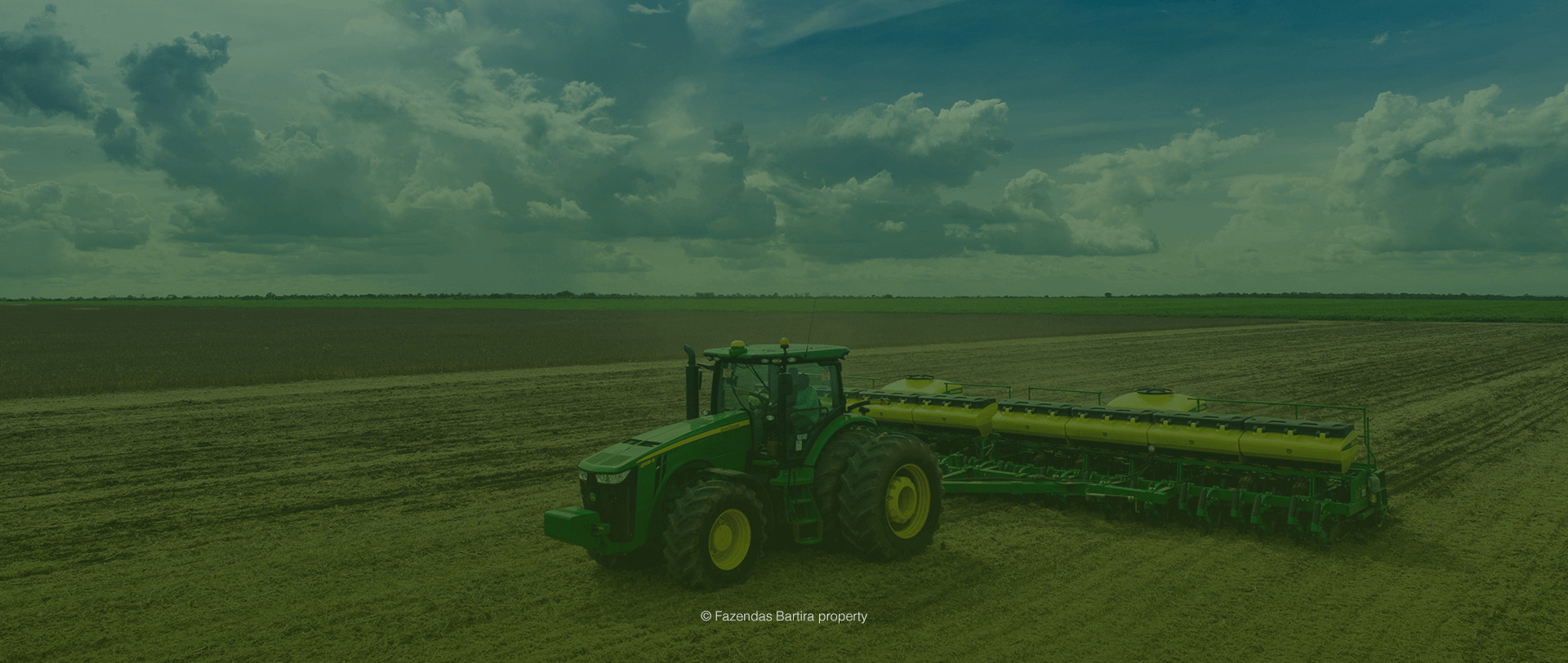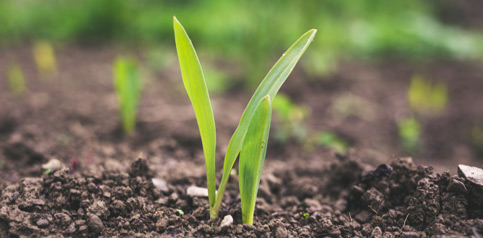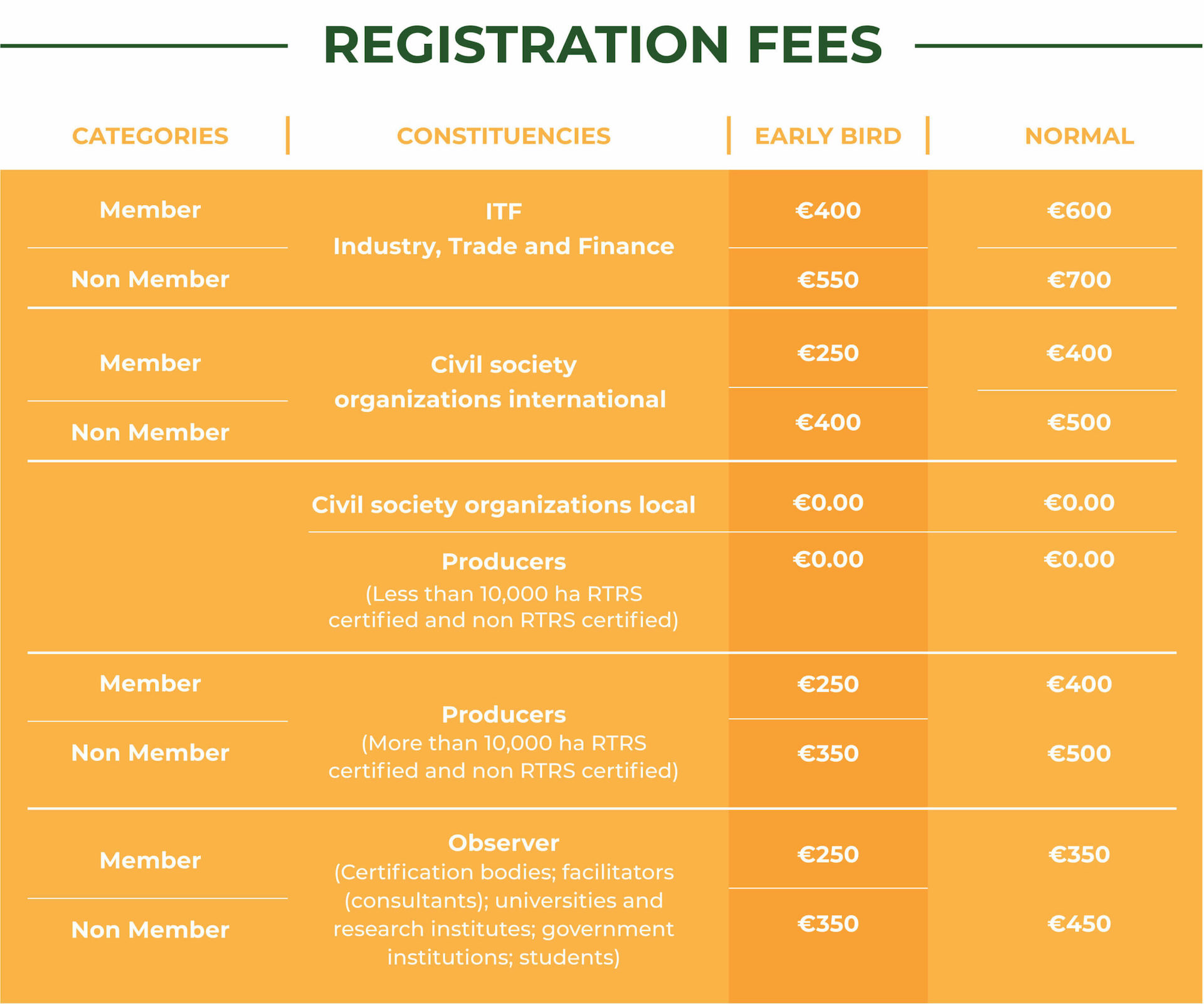What are the benefits
of RTRS certification?
It is a management tool and a sustainable strategy globally recognized and applicable worldwide.
Applicable to the production of soy for multiple purposes: human consumption, animal feed, biofuels.
Available for producers of any kind and size: individual or group certification.
A solution for global sustainability goals: markets committed to responsible supply chains.
It is a credible tool that ensures process transparency: a rigorous and robust verification and certification system. Audits are conducted by independent Certification Bodies, which are in turn audited by recognized Accreditation Bodies.
It ensures that soy is produced in environmentally-correct, socially-appropriate and economically-viable process, deforestation and conversion-free.
Certification scope
Production











Producer
The RTRS Standard for Responsible Soy Production is a holistic certification scheme including five principles and 106 mandatory and progressive compliance indicators:
· Legal Compliance and Good Business Practices
· Responsible Labor Conditions
· Responsible Community Relations
· Environmental Responsibility
· Good Agricultural Practices
Ensures zero deforestation and zero conversion soy production.
RTRS Certification for Responsible Soy Production is valid for 5 years with mandatory annual surveillance audits.
Chain of Custody











Chain of Custody
The RTRS Chain of Custody (CoC) Standard describes the requirements for the different traceability systems an organization can implement to keep control of RTRS-certified material inventories, either soybeans or soy byproducts.
It can be applied across the entire supply chain and it is mandatory for organization wishing to receive, process and trade RTRS soy.
I want to get certified
Your questions about certification or comments are most welcome,
send us an email to [email protected]
Certification Bodies
Certification Bodies are responsible for auditing and certifying RTRS standards through qualified RTRS Lead Auditors. Certification Bodies are in turn accredited by National Accreditation Bodies.


OUA accreditation for RTRS Principles and Criteria Standard and for RTRS Chain of Custody Standard

















CANADIAN SEED INSTITUTE
Preliminary Recognition for RTRS Principles and Criteria Standard and for RTRS Chain of Custody Standard


Roy van Wyk (Executive Director)
Tel: 613 236 6451 /+001 613 236 6451 / +001 613 236 7000
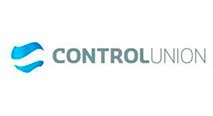

CONTROL UNION
OAA accreditation for RTRS P&C Standard and for RTRS CoC Standard.




Diego D. Cybulka
[email protected]
Tel: +54 11 4719 9452 / M: +54 9 11 6857 8394



Fabio Beltrame
[email protected]
Tel: +55 11 3035 1600 / M: +55 11 9948 34791
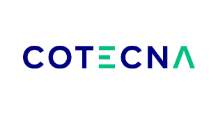

COTECNA INSPECCION ARGENTINA Preliminary Recognition for RTRS Principles and Criteria Standard




Erica Alvarez
[email protected]
Tel: + 54 11 5252 6136 / M: +54911 3927 8762


INMETRO accreditation for RTRS Principles and Criteria Standard and for RTRS Chain of Custody Standard.



Deise Caron
[email protected]
Tel: +55 51 3012 7080


GENESIS CERTIFICAÇÕES
Preliminary Recognition for RTRS Production Standard






OUA accreditation for RTRS Principles and Criteria Standard and for RTRS Chain of Custody Standard




Laura Aishemberg
[email protected]
Tel: +598 2 600 01 65 / M: +598 95 418 182



Gustavo David de Lima
[email protected]; [email protected]
Tel: +595 21 620 7779 / M: +595 21 992 431 018
M: Uruguay +598 94 048 502
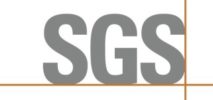

OAA accreditation for RTRS Principles and Criteria Standard. Preliminary Recognition for RTRS Chain of Custody Standard








Learn about the requirements to be met by Certification Bodies wishing to be recognized by RTRS:
Certification Bodies wishing to be recognized by RTRS are required to send a request to technical [email protected].
Qualified lead auditors
Are auditors trained to conduct certification audits. Qualified lead auditors must meet the following requirements:
· Successful completion of a RTRS-endorsed training course delivered by certification bodies
· Proven lead assessor experience in similar certification schemes
Courses
Certification Bodies deliver RTRS-endorsed training courses for all those interested in conducting audits under RTRS Standards. Courses are delivered by qualified staff, with specially prepared materials and final evaluation.
If you wish to receive information about upcoming courses please contact RTRS Secretariat.
Course Announcement
Lead Auditor workshop
Date:27/01/2020 al 30/01/2020
Place: São Paulo, Brazil
Duration: 3 days
Accreditation Bodies
These are the entities responsible for auditing certification bodies.


Organismo Argentino de Acreditación (OAA)
Maria Paola Marsico
[email protected]
Tel: +54 11 2150-2164/2162/2158
M:+549 112294-6525
Bartolomé Mitre 648 1°floor,
Ciudad de Buenos Aires, Argentina (C1067ABB)
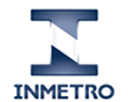

Instituto Nacional de Metrología, Qualidade e Tecnologia (Inmetro)
Caetano da Conceição
[email protected]
Gabriela Noemi Moreira Silveira
[email protected]
Tel: +55 21 2563 2869 / 2877 / 4617
Rua Santa Alexandrina. 416, Rio de Janeiro, RJ, Brasil (CEP 20261-232)


Organismo Uruguayo de Acreditación (OUA)
Ing. Qca. Liliane Somma
[email protected]
Tel: +598 2 908 0952 / +598 2 908 1653
Rincón 723, Oficina 112, Montevideo (11000)
Public Consultations
Technical Documents
Public consultations closed
- Period: 1 June at 1 August 2020
- To send your comments and remarks please fill in the form here.
- Period: 27/09/2019 al 27/11/2019
- Send your comments to: [email protected]
- Second period: 27/12/2019 to 24/01/2020
- Send your comments to: [email protected]
Audits
Initial audits conducted by the various certification bodies must be submitted to a public consultation during 15 days prior to the audit.


